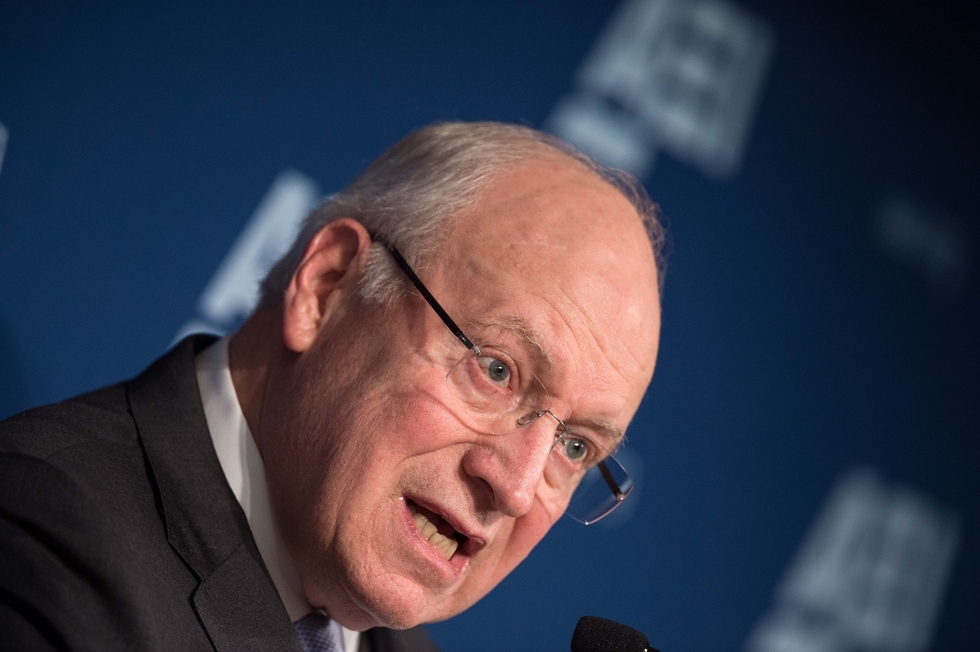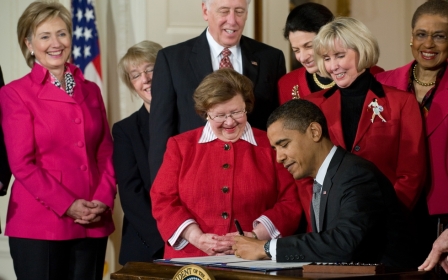Congress debates Iran deal as Obama rallies key votes

WASHINGTON - The US Congress began tense deliberations on Tuesday ahead of prospective votes on the Iran nuclear deal, as President Barack Obama gained sufficient Senate support to prevent Republicans' last-gasp efforts to torpedo his accord.
As lawmakers returned from their summer recess, Senate Majority Leader Mitch McConnell said he would ask "all senators to be present in the chamber" to debate the merits and shortcomings of the international agreement aimed at preventing Iran from obtaining an atomic bomb.
Congress resumed just as the White House earned a major victory in securing support for the deal from 41 senators, the number needed to block a resolution disapproving of the controversial accord.
Senator Maria Cantwell, the lone undecided Democrat, joined the president's camp late Tuesday, becoming the 42nd senator to back the agreement. Four Senate Democrats stand opposed.
Should 41 or more vote against advancing the Republican-backed resolution, a blocking procedure known as a filibuster, the effort to kill the landmark agreement would remain bogged down in the 100-member Senate.
The White House had launched an all-out effort to get lawmakers to back the international agreement that scales back Tehran's nuclear programme in exchange for an easing of crippling economic sanctions.
Despite a Republican-driven lobbying push against the accord, Obama last month had won enough support to sustain the veto he would lodge if Congress were to disapprove of the deal.
The White House made the president's veto threat official Tuesday, warning that sabotaging the agreement would prod Iran into resuming its nuclear programme.
"Enactment of the resolution would deal a devastating blow to America's credibility as a leader of diplomacy and could ultimately result in the exhaustion of alternatives to military action," the White House budget office said in a statement.
The House of Representatives is expected to vote on its resolution of disapproval later this week.
But with Senators Ron Wyden, Gary Peters, Richard Blumenthal and Cantwell expressing support for Obama's nuclear deal Tuesday, there are enough votes to prevent the resolution from advancing in the Senate.
Some Democrats, including Senator Chris Coons, are reportedly suggesting they would prefer a direct up-or-down vote on the resolution instead of blocking it.
McConnell sought a final vote as well, and called on "every senator to resist attempts to obstruct a final vote and deny the American people and Congress the say they deserve on this important issue".
'Better than no deal'
McConnell warned that "by almost any measure, we know that Iran will emerge stronger from this deal in nearly every aspect of its national power, and better positioned to expand its sphere of influence".
There is clear scepticism about the deal on the Democratic side too, particularly on Iran upholding its part of the bargain.
"While this is not the agreement I would have accepted at the negotiating table, it is better than no deal at all," Blumenthal said in a statement, highlighting the threat of a crumbling Iran sanctions regime if the accord collapses.
Should Washington walk away from the deal that it negotiated along with Britain, China, France, Germany, Russia and Iran, "the United States, instead of Iran, would be isolated," he said.
"Iran's nuclear programme would be unconstrained. Rejection would fracture our unified efforts with allies and greatly weaken international pressure on Iran and American leadership, especially if economic sanctions are needed."
Many Democrats backing the deal have done so reluctantly or with skepticism, particularly due to what Wyden called a history of deception from a "duplicitous and untrustworthy Iranian regime.
"However I have decided the alternatives are even more dangerous," Wyden said.
Meanwhile, Republican former vice president Dick Cheney blasted the deal as "madness" and "capitulation" to Iran.
He offered an alternative, saying a far better deal was still possible. “Iran will not be convinced to abandon its programme peacefully unless it knows it will face military action if it refuses to do so,” as reported in the Guardian.
Cheney referenced the US invasion of Iraq in 2003, based on faulty intelligence, as one example of the efficacy of military action. He also said that there was “evidence that the Iranians halted a portion of their programme in 2003 in the aftermath of the US invasion of Iraq – hoping to protect themselves from suffering Saddam’s fate”.
"Every member of Congress swears to defend the Constitution from enemies outside our shores," Cheney said Tuesday at the American Enterprise Institute, a conservative think tank.
"A vote to reject that agreement will do that. Approving it will not."
Stay informed with MEE's newsletters
Sign up to get the latest alerts, insights and analysis, starting with Turkey Unpacked
Middle East Eye delivers independent and unrivalled coverage and analysis of the Middle East, North Africa and beyond. To learn more about republishing this content and the associated fees, please fill out this form. More about MEE can be found here.




